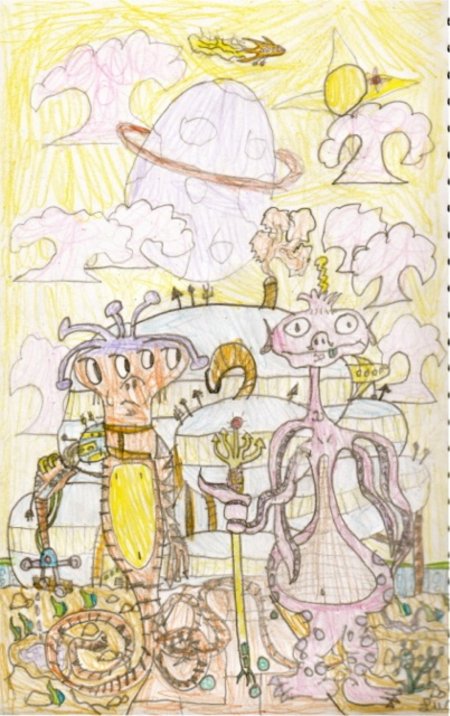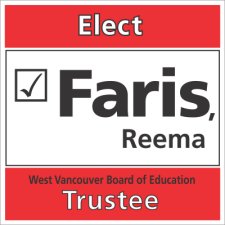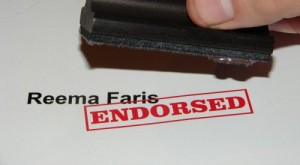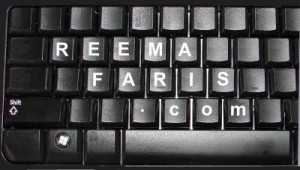The Arts In Education – For A Better World
What a relief! Mark Mercer’s article in this morning’s newspaper reiterated that “universities are about education, about learning for the sake of learning” and that “university done rightly is great preparation for life”.
This was a welcome contrast to Margaret Wente’s recent diatribe against the Occupy protesters. With a swipe of her pen, she denigrates the value of the humanities. She seemingly fails to recognize that there are likely as many mechanical engineers out of work today as there are sociology students trying to find their way in life.
The business challenges we face and the deficiency in employment opportunities for young adults is not due to the educations they pursue; rather it reflects the reality of the structural weaknesses and flaws in our economies and societies.
And while we struggle to address these serious questions, as educators we need to ensure that we don’t lose sight of the value of the humanities in education and the value of the arts in our students lives.
 When I walk down the hallways at my son’s school, I’m always struck by the amazing artwork the students produce: artwork directly related to the curriculum, the topics they are studying, and their learning. A lot does get done and I think that a lot more needs to be done to without imposing a further burden of delivery on teachers.
When I walk down the hallways at my son’s school, I’m always struck by the amazing artwork the students produce: artwork directly related to the curriculum, the topics they are studying, and their learning. A lot does get done and I think that a lot more needs to be done to without imposing a further burden of delivery on teachers.
What if in-residence programs were implemented? For example, what if a published author served as writer-in-residence for the district? We have great visual artists on the North Shore — why can’t we look at having them conduct classes or organize field trips to their home studios throughout the year? Why can’t a professional dancer come in on an extended basis, once a week, to help choreograph a holiday show? Could we organize visits to Sinfonia’s (the North Shore’s professional orchestra) rehearsals? Why isn’t it automatically on the calendar every September and October for classes to take in sessions offered during the Vancouver International Writers Festival or Vancouver International Film Festival?
Some schools may be pursuing these sorts of projects and some schools aren’t. These type of initiatives, in my mind, would compliment teachers’ efforts and would be most viable in conjunction with greater support for specialist teachers (music, art, drama, dance, etc.) already hard at work. I also see that such programs would be most economically effective if delivered on a resource-sharing model between the district, the schools, and the Parent Advisory Councils (PACs).
I’m not advocating a specific approach or model because I don’t have all the information necessary to say which one will work the best. What I do know is that there is room to do more, much more. And we must do more because the arts, to me, are integral to the human experience and our children’s learning will be enhanced if art is more fully-integrated in their daily routines as a central component rather than as simply an adjunct.
I agree with Martha C. Nussbaum who writes in her 2010 book Not For Profit – Why Democracy Needs the Humanities:
“If we do not insist on the crucial importance of the humanities and the arts, they will drop away, because they do not make money. They only do what is much more precious than that, make a world that is worth living in, people who are able to see other human beings as full people, with thoughts and feelings of their own that deserve respect and empathy, and nations that are able to overcome fear and suspicion in favor of sympathetic and reasoned debate.”
I think there’s room to dispute her contention that the arts do not make money (look at this recent article by John Doyle on the profits made by private television broadcasters), but the point is that there is inherent value in the arts and humanities which we risk losing in a world solely focused on measurable utility and on money.
And isn’t that the ultimate purpose of education, as Nussbaum says, to “make a world that is worth living in, people who are able to see other human beings as full people”?
So let’s do that. Let’s make sure that our curricula do not sacrifice the arts. Let’s not make this a lesser world, but a better one.
Nerves, Questions, and Relevance
I was nervous.
It wasn’t my first speech nor my first All Candidates Meeting, and yet I hadn’t experienced as much anxiety during other principal campaign events, primarily the West Vancouver Citizens for Good Government (WVCGG) endorsement process and the Shaw TV taping.
This time, however, the evening was hosted by the West Vancouver District Parents Advisory Council (WVDPAC) and the audience was made up of parents with children in the public school system as well as educators who work in the district. These are individuals with a deep, passionate interest and commitment to public education and it showed in thequestions we were asked. Questions that ranged from the challenge of a primary school with under-enrollment to our experience with governance to the current job action and more. The most heart-felt question came from a Sentinel Secondary School coach and educator which touched on the application which the Labour Relations Board (LRB) is currently considering: one which includes a request by the employers group for a 15% reimbursement from the British Columbia Teachers’ Federation (BCTF) for services not rendered as part of the on-going labour dispute.

Given the current structure of the public education system in BC, these are some of the toughest questions for a Trustee-candidate to answer because individual Trustees and individual Boards of Education may not wield as much impact as one would expect. While that may lead some to question the relevance of the Boards, I do think they’re essential as I mentioned in my presentation last night and as you’ll see in the accompanying text.
As to my nerves, they gradually wore off to a gentle flutter although having Mom and Dad in the audience, as well as my son, probably helped ramp up my stress level.
Even though it was a school night and I knew we’d be out late, I had my son with me. This was likely to be our last opportunity as Trustee-Candidates to speak to a larger group, and I wanted him to be a part of the process and to share the experience with me. On our way home, I asked what he thought of it all. “It was okay Mama,” he said. “But I thought it would be more like The Debaters on CBC. I thought after the speeches, they’d all talk together, the audience would vote and we’d get to go home.”
It may have been nice to incorporate more humour into the night’s proceedings, but unfortunately not much about education these days is a laughing matter.
Remarks presented at the West Vancouver District Parents Advisory Council (WVDPAC) All Candidates Meeting – November 3, 2011
My thanks to West Van DPAC for hosting this event, to Irene Leschert for moderating, and to you for being here this evening.
Are Boards of Education relevant? That’s a question that’s been put to me a few times since I declared my candidacy last month.
Yes, given the current context, Boards of Education are relevant; I think they’re essential. The Board acts on behalf of the community and helps to ensure that the public education system reflects the community it serves. Having the Board is the way in which we’re able to capture the essence of what’s unique about West Vancouver in the work that’s done in our schools.
That’s today. If, as part of the journey through the 21st century, the structure is to be reviewed, re-evaluated, and reinvigorated, then I’d like to be a part of that conversation to make sure the governance model we choose allows the system to work at its best.
As part of making the system work at its best, I’d like to reassess the monthly public Board meetings. I think there are ways to make the meetings more relevant to the community and to establish them as a forum for dialogue between all stakeholders.
I want to turn now to a subject that I’ve been grappling with and that’s the issue of technology in our schools. I believe that technology will be an integral feature of a great public education system because we live in a digital age and there is no turning back.
Having said that, I’d like to see us take the time to consider the challenge thoroughly and from all perspectives. Let’s take a moment to listen to parents’ concerns and adjust our approach accordingly.
Because, for me, thankfully, the world still operates on the basis of human connection. And to sacrifice that connection for the perceived benefits or cost savings of the latest tech wonder would be, in my mind, a mistake.
I enjoyed watching the video at the DPAC meeting yesterday which profiled the first hundred years of public education in West Van. The interviewer off-camera asked a number of people what they thought schools would look like in the future.
As I reflected on that question, I realized that my vision of personalized learning in the 21st century is not that of a student huddled in front of a computer, surrounded by gadgets all alone inside their home — even though we have the ability to engage people from around the world in multiple conversations in real time from our own spaces.
Let’s embrace technology, but let’s make sure it works for us, and not accept it blindly at the cost of losing the human connections which bind us together.
It’s an exciting time to be involved because we’re on the threshold of new ways and for the sake of our students we have to make sure that what we’re working towards is a better system.
Better for all those involved, but most importantly for the students who deserve to feel that their learning does matter to their future as well-rounded, critically-thinking, engaged citizens.
My name is Reema Faris and I hope I can count on your support at the ballot box on November 19th.
Thank you.
All Candidates Meeting – October 27th
 As mentioned earlier, I’m very pleased that my candidacy has been endorsed by the West Vancouver Citizens for Good Government. The speech I gave the night of the endorsement meeting, and which is reprinted below, focused on my experience as a parent-volunteer within the public education system. These remarks are also featured in the television spot filmed by Shaw Cable Television, a service offered to all Lower Mainland candidates, and which will air on November 6 at 7:15 p.m. and November 13 at 11:15 p.m.
As mentioned earlier, I’m very pleased that my candidacy has been endorsed by the West Vancouver Citizens for Good Government. The speech I gave the night of the endorsement meeting, and which is reprinted below, focused on my experience as a parent-volunteer within the public education system. These remarks are also featured in the television spot filmed by Shaw Cable Television, a service offered to all Lower Mainland candidates, and which will air on November 6 at 7:15 p.m. and November 13 at 11:15 p.m.
I would love to hear from you, so please don’t hesitate to forward your thoughts, comments, questions and suggestions to me.
Remarks presented at the West Vancouver Citizens for Good Government Endorsement Meeting – October 27, 2011
Good evening. I’m Luc’s Mom, Reema Faris, and I’m running as a candidate for the position of Trustee with the West Vancouver Board of Education.
Why?
I see it as the next leg of a journey that began when Luc started Kindergarten in 2006.
I walked into the Parents Advisory Council meeting as a new parent and walked out as the school’s representative to West Van DPAC. That transition, in the space of an hour — maybe an hour and a half — reflects my belief in working for my community.
Since then, I’ve served continuously as a member of the PAC executive including two years as Chair and one year as Co-Chair.
One of my favourite projects has been the noon-hour Creative Writing Club which I started last year.
I’ve worked with the community of educators at the school and within the district as well as district staff and parents to expand the playground at Ecole Cedardale, purchase laptop computers, enhance the library’s collection, and much more.
I believe now’s the time to translate my experience from that of a parent-volunteer to making new contributions as a member of the Board of Education.
In that capacity, I’d like to make sure the programs we offer equip students with the critical thinking skills they need to cope with our ever-changing world.
I want to make sure students develop a strong sense of ownership for their own learning. Let’s make sure students learn to ask questions because they recognize the intrinsic value of learning for the pure pleasure of learning.
What about technology? How do we integrate technology use sensibly and equitably in our classrooms while taking into account parental concerns?
I’d like to talk about the arts in education and revitalizing board meetings, but two minutes pass by quickly, almost as quickly as my five years as an active parent-volunteer.
I’m ready to take the next step. Because I believe the foundation of our society depends on the education we provide our children. We need a universally accessible public education system if what we want to build is a socially just society.
My name is Reema Faris and I hope I can count on your support at the ballot box on November 19th.
Thank you.
Questioning Questions
I’m a big fan of questions. I’m sure that I could find a question to pose about almost any topic or situation, often to the annoyance of family members.
This ability to ask questions is what underpins our ability to be critical thinkers and critical thinking is being pinpointed, more and more, as an essential skill for students.
In political campaigns, questions are fundamental in the research we do to get to know our candidates in order to formulate our voting decision. Asking questions is key, I think, to a healthy democratic process. That’s why there’s such an outcry when we sense our ability to ask questions is being curtailed or when answers seem to be so scripted that they don’t sound sincere.
In my community, the West Vancouver Citizens for Good Government (WVCGG) is a group of citizen-voters which makes recommendations to the public on which candidates they feel would best-serve and represent the community in the role of municipal councillor or school trustee.
Their process is extensive: those candidates who opt to seek endorsement are interviewed by WVCGG executive members and the group also hosts a public All Candidates Meeting (ACM). A general meeting is held a week after the ACM where, after speeches from candidates, the WVCGG executive presents their endorsement recommendations. The members then cast their votes on which candidates they feel the organization should endorse.
At the October 27 endorsement meeting, I was very gratified when the WVCGG’s members voted to endorse my candidacy.

In my interview with the WVCGG executive, there were 12 questioners representing a broad cross-section of West Vancouver residents. Each question was posed by a different panelist, and the questions were spot on — they addressed some of the general issues in education as well as those which pertained only to West Vancouver.
It was a job interview with appropriately targeted questions. In contrast to the WVCGG’s job interview, The Vancouver Sun (the Sun), as part of their municipal candidates’ survey, asked a number of questions which I found disconcerting.
The Sun’s online survey featured a series of drop-down menus. While this may be the most efficient way of collecting data, I found the questions posed regarding ethnic background, religion, and birth country unacceptable.
Candidates should be judged on the basis of the stance they take on issues — not on whether or not they were born in Canada, for example. I feel that if the Sun wanted to identify areas where the political representatives do not reflect in one way or another the residents of their communities (as an editor at the paper indicated to me), then they should assign their reporters to investigate the matter and to file their stories accordingly.
The other rebuttal I received when I raised my concerns was that the questions asked were similar to those asked on the census. To me, that’s entirely different: census information is private, presented in the aggregate, and collecting the information is an officially sanctioned government initiative.
The Sun, by profiling candidates in their database based on elements such as ethnicity, religion, and place of birth, creates the impression in voters’ minds that these are factors upon which candidates should be judged. I don’t believe that’s true. If a voter, for example, were concerned about the religious bias of a candidate and how that might influence their action on an issue, the best way to ascertain that is by asking the candidate a question. We cannot assume that having candidates merely identify themselves as a member of a particular religion will tell us what their position or view is on a topic.
A candidate’s merit rests on their opinions, their experience, and their vision, not on the designation with which they may be labelled.
I urge all voters to take advantage of opportunities to meet their local candidates and to use the electronic tools at our disposal to make contact with them. Ask questions, but make sure they are the type of questions which will be of the most value to you in making your decision on election day.
Helping Secondary Students Contend With Post-Graduation Options
There’s an item on my to-do list that’s lingered for months: not a now thing. It’s an odd name for an action item, but consider it a secret family code.
I’ve been intrigued by the notion of jumping on board the Twitter express and of establishing a personal website as my on-line home. The website, as originally envisioned, would be a private one accessible to extended family members and close friends only. It would also be a platform for sharing my son’s artwork with those we know well. The concept intrigued him and in the evenings he’d ask, “Mama, can we do the website now?” Given that the question was often posed with five minutes to go until bedtime, my answer was, “No, it’s not a now thing.” Thus, the cryptic notation on my to-do list.
 With my decision to run as a Trustee candidate for the West Vancouver Board of Education, the not a now thing has become a done thing albeit in a different format and for a different reason. It’s a step I had wanted to take, was hesitant about taking, and then was propelled into taking as circumstances unfolded. I had to make new decisions and had to face the requirement for immediate action. A looming election date is a strong motivator!
With my decision to run as a Trustee candidate for the West Vancouver Board of Education, the not a now thing has become a done thing albeit in a different format and for a different reason. It’s a step I had wanted to take, was hesitant about taking, and then was propelled into taking as circumstances unfolded. I had to make new decisions and had to face the requirement for immediate action. A looming election date is a strong motivator!
This personal progression has made me reflect on a question that’s already popped up a number of times during the campaign. This question is often framed in the context of whether the emphasis on educating our students for a post secondary career in academics neglects opportunities for graduates who may be inclined to other avenues of study.
What a challenging question! We live in a time of straitened resources and there’s very little success to be found when organizations attempt to be “all things to all people”. There are other factors to consider, too. For example, family expectations and pressures which are private and individual to each situation. For those of us who’ve accumulated life and work experience, we also know that our paths and our destinations often change in unexpected ways.
With these and other factors in mind, what role might the school district play in accommodating different learning intentions?
It would seem to me that the answer is not to force students into career decisions too soon, but rather to offer broad horizons for them to consider and to equip them with the tools needed to consider and weigh their options. Providing the resources to investigate alternatives and enabling them to become better decision makers with regard to their own learning and course of studies. Work experience programs, summer internships, guest presentations by working professionals, in residence programs, assemblies focused on career planning, increased counseling support — I’m sure much is already being done and I think there are a myriad of other options which might also be explored.
It would be great to have the opportunity to work with our community of educators on a well-integrated range of programs and initiatives to let West Vancouver students know that while their career choices may not be a now thing, they have been well-prepared to find their own way among the many, many options available to them.